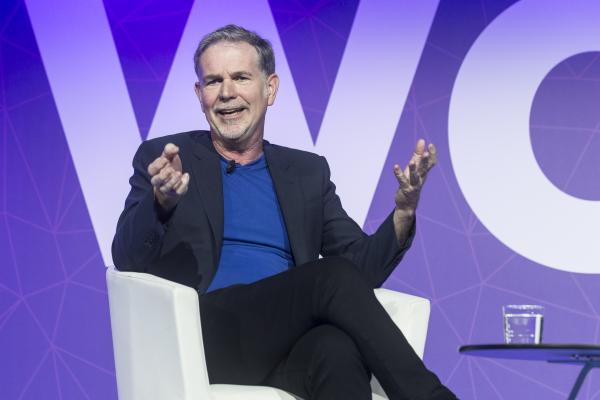How Business Messaging Can Improve Customer Experience
Consumer demand for personalized experiences has never been higher.
Big data, marketing automation, and other technologies make it easy for businesses to track customer behaviors and preferences. Organizations that deliver specialized and personalized experiences see more than just an increase in consumer satisfaction: they see significant growth in their bottom line.
When it comes to customer communication, customers want to choose how they communicate with you. Traditional marketing channels are slowly becoming less effective and even harmful. Companies must either invest in expensive marketing initiatives or find new ways to connect and interact with customers.
Enterprise messaging enables businesses to improve the customer experience at scale. With professional messaging, businesses can communicate with customers on their preferred channel to deliver an exceptional customer experience and help consumers engage with businesses for pre-sales and post-sales activities.
Companies use enterprise instant messaging software for one-to-one and group conversations between employees and customers. These tools also enable rapid communication between team members.
What is Business Messaging?Business messaging allows businesses to connect with consumers on their preferred messaging channels. This is a powerful strategy for building strong customer relationships and driving profitable business results.
Companies use professional messaging to deliver an exceptional customer experience, improve their marketing and sales efforts, and drive revenue growth by building brand loyalty among the consumer base.
Enterprise messaging, also known as asynchronous messaging, is no longer a new concept. With the advent of messaging apps, changing buyer behavior and expectations, and increasing competition, businesses are using new communication channels to connect with their customers.
Short Messaging Service (SMS), or text messaging, is the most commonly used means of messaging. We have all received shipping notifications, advertising offers, promotional campaigns and company reminders. These are the types of interactions we often associate with business messaging.
But business messaging isn't one-sided and isn't just about texting. Business communications can take place on any digital platform where your consumers already spend their time, and such practices are expected to enable two-way conversational interaction.
Companies have found that to be successful, they need to interact with their customers using smartphones and other email-enabled devices. Consumer preferences have forced companies to make critical changes that affect the channels they use for customer engagement.
Companies are now delivering a personalized experience through real-time communication channels such as instant messaging (IM) and social media messaging. Customers interact with businesses using instant messaging applications such as Facebook Messenger, WhatsApp, WeChat and LINE.
Here are some ways companies communicate with their customers in real time:
Direct messages are exchanged via social media sites such as Facebook, Twitter and Kik to provide personalized customer support A merchant communicates delivery information to customers via text message to avoid incoming phone calls AI sales assistant solutions provide customers with personalized product recommendations and guided selling A website visitor who needs help uses an online chat function to get help Examples of corporate email channelsThere are many enterprise email platforms, including:
facebook messenger Twitter Microsoft Teams SMS Apple iMessage WeChat Google Hangouts WhatsApp Weibo KakoTalk Viber instagram Why is email important for business?From social networking sites to texting, messaging has become an essential part of everyday life and has dramatically changed the way we connect with others. Facebook has 2.9 billion monthly active users, WhatsApp has

Consumer demand for personalized experiences has never been higher.
Big data, marketing automation, and other technologies make it easy for businesses to track customer behaviors and preferences. Organizations that deliver specialized and personalized experiences see more than just an increase in consumer satisfaction: they see significant growth in their bottom line.
When it comes to customer communication, customers want to choose how they communicate with you. Traditional marketing channels are slowly becoming less effective and even harmful. Companies must either invest in expensive marketing initiatives or find new ways to connect and interact with customers.
Enterprise messaging enables businesses to improve the customer experience at scale. With professional messaging, businesses can communicate with customers on their preferred channel to deliver an exceptional customer experience and help consumers engage with businesses for pre-sales and post-sales activities.
Companies use enterprise instant messaging software for one-to-one and group conversations between employees and customers. These tools also enable rapid communication between team members.
What is Business Messaging?Business messaging allows businesses to connect with consumers on their preferred messaging channels. This is a powerful strategy for building strong customer relationships and driving profitable business results.
Companies use professional messaging to deliver an exceptional customer experience, improve their marketing and sales efforts, and drive revenue growth by building brand loyalty among the consumer base.
Enterprise messaging, also known as asynchronous messaging, is no longer a new concept. With the advent of messaging apps, changing buyer behavior and expectations, and increasing competition, businesses are using new communication channels to connect with their customers.
Short Messaging Service (SMS), or text messaging, is the most commonly used means of messaging. We have all received shipping notifications, advertising offers, promotional campaigns and company reminders. These are the types of interactions we often associate with business messaging.
But business messaging isn't one-sided and isn't just about texting. Business communications can take place on any digital platform where your consumers already spend their time, and such practices are expected to enable two-way conversational interaction.
Companies have found that to be successful, they need to interact with their customers using smartphones and other email-enabled devices. Consumer preferences have forced companies to make critical changes that affect the channels they use for customer engagement.
Companies are now delivering a personalized experience through real-time communication channels such as instant messaging (IM) and social media messaging. Customers interact with businesses using instant messaging applications such as Facebook Messenger, WhatsApp, WeChat and LINE.
Here are some ways companies communicate with their customers in real time:
Direct messages are exchanged via social media sites such as Facebook, Twitter and Kik to provide personalized customer support A merchant communicates delivery information to customers via text message to avoid incoming phone calls AI sales assistant solutions provide customers with personalized product recommendations and guided selling A website visitor who needs help uses an online chat function to get help Examples of corporate email channelsThere are many enterprise email platforms, including:
facebook messenger Twitter Microsoft Teams SMS Apple iMessage WeChat Google Hangouts WhatsApp Weibo KakoTalk Viber instagram Why is email important for business?From social networking sites to texting, messaging has become an essential part of everyday life and has dramatically changed the way we connect with others. Facebook has 2.9 billion monthly active users, WhatsApp has
What's Your Reaction?















![Three of ID's top PR executives quit ad firm Powerhouse [EXCLUSIVE]](https://variety.com/wp-content/uploads/2023/02/ID-PR-Logo.jpg?#)







